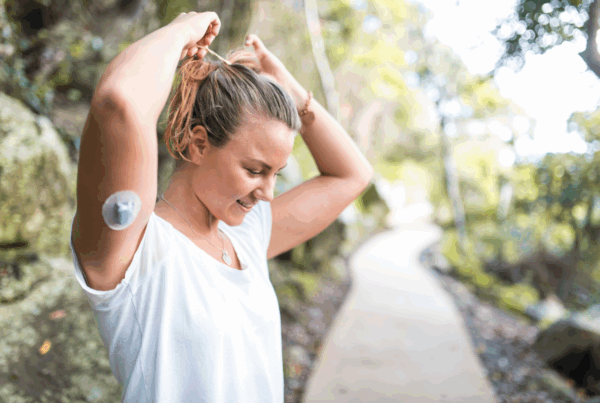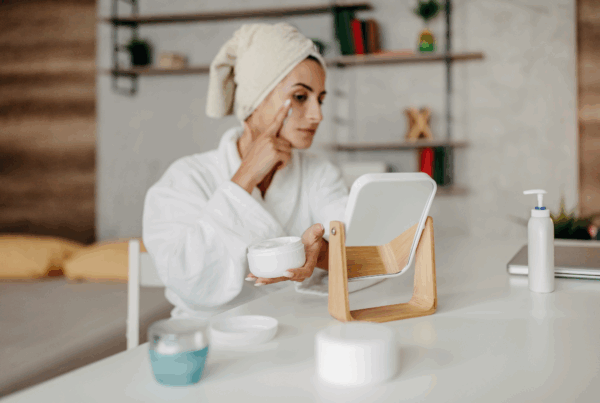What Happened To Those Days When You Could Sleep All Day And Still Be Ready For Bed At Night?
Getting enough “Z’s” can seem impossible.
As a fast-track executive, you’re always trying to manage your time and find balance between family life with your work ambitions.
It Can Be Really Hard To Turn Off All The Noise In Your Head.
At the end of a very productive day, you are just supposed to magically turn it all off and get a good night’s sleep – – seems impossible, right?
In this week’s blog, I’m going to give you three conversations that you need to have with your primary care physician as it pertains to sleep.
There Are Tremendous Short-Term Consequences Of Not Getting Enough Sleep.
- You can’t learn anything new.
- You’re irritable.
- You’re at risk for auto accidents.
- It causes a mood depression.
- Worsening of high blood pressure and blood sugars.
The Long Term Consequences Of Sleep Deprivation Are Just As Devastating.
- Obesity
- Chronic fatigue
- Alcohol abuse
- Heart disease
- Hypertension
- Diabetes
- Depression and Anxiety
Let’s be honest. When you’re chronically fatigued, you’re no fun to be around.
Getting enough sleep is a really big deal.
Here Are Three Conversations Around Sleep That You Need To Be Having With Your Doctor.
No matter what camp you call into, this is a really important conversation to have with your doctor, because whether it’s you or someone you love, struggling with sleep is real.
Conversation #1: “Do I Need Sleeping Medication?”
When you address this question with your doctor, you should have done everything you can without using medication to address your sleep first.
There are two lanes when it comes to using medication as a solution to help you sleep: habit- forming and non-habit forming.
The two non-habit forming medications you can talk to your doctor about are Benadryl and Melatonin.
You may know Benadryl for allergies, but it’s actually really, really good for sleep. The active ingredient in Benadryl is a first line treatment for insomnia. I personally take Benadryl regularly after working a lot of night shifts, when my sleep-wake cycle is off.
In about 10% of the population, Benadryl has a paradoxical effect – It makes them hyperactive. But in most cases, Benadryl is a fantastic first line treatment for insomnia.
Melatonin is most famously and most widely-used for treating insomnia. One of the most common comments I hear from my private clients is, “Oh, doc, I’ve tried melatonin. It just doesn’t work for me.” The truth is, some people need very high levels of melatonin to initiate and maintain sleep, so if you’ve tried it before and it hasn’t worked, chat with your doctor about the dosing. You might be somebody that just needs a higher dose to get the benefit.
The habit forming sleep medications include drugs like Ambien and Lunesta.
Ambien and Lunesta work very similarly, have very similar side effect profiles, and have a very similar net effect. They’re both considered hypnotics and they work very well at making you sleepy and helping you maintain sleep. They’re intended, like lots of medication, to be used in short-term to help you transition back into a normal sleep-wake cycle after it’s been interrupted.
The challenge is that your brain and the chemical in these compounds develop a relationship very quickly. If you use Ambien and Lunesta every night, understand that there is a clear correlation with potential for abuse and dependency on these medications.
The benefit of these medications is that they work fantastically for most people. If your goal is to get to sleep, they will usually put you to sleep. So much so that you need to ensure that you have a a seven to nine-hour runway of sleep time available. If you don’t, I would not recommend Ambien or Lunesta.
Conversation #2: “I’m Already On Sleeping Medication, How Can I Come Off Of It?”
This is a really good question. Coming off of sleeping medication is achievable, but it’s not easy.
It you’re taking Benadryl or melatonin, there aren’t any negative physiologic responses of dependency or withdrawal if you stop taking it. It just might be a little bit challenging for you to fall asleep on your own.
However, if you’ve been taking the habit-forming sleep agents like the Lunesta and Ambien, and you want to come off of them, you really need to have close supervision by your physician.
The consequences of withdrawing from these medications on your sleep and overall mood can be pretty intense. Your doctor needs to wean you off of these medications in a very strategic way with careful supervision.
Conversation #3: “What Can I Do At Home To Help Me Sleep Better At Night?”
Have you ever heard the term sleep hygiene? It’s a term that we in the medical field use to discuss all the things you can do at home for clean sleeping.
It sounded goofy the first time I heard it, but that’s really the official term. Here are some of the best steps you can take to improve your sleep hygiene.
Make sure the room is dark.
Step number one of good sleep is that your room has to be pitch black. Anything but utter darkness, affects your biochemistry, which affects your sleep. Rule number one of good sleep is your room has got to be pitch black. It just has to be. If you’ve got to sleep with children or people who need a light, then you need to get a sleep mask.
Make sure the room is quiet.
It has to be quiet. If you’re sleeping with white noise, or the TV on in the background, it is interrupting your deep sleep. This has tremendous consequences because you may not be able to get to sleep as soon as you need to. You might get to sleep but never get deep enough, satisfying sleep.
Zero screen time within 30 minutes of bedtime.
That means no TV, especially in the bedroom. It’s also a big, no-no to be on your phone before bed. Look, I’m all for social media, for connectivity, and for all the benefits that technology gives us, but you have to set boundaries. You have to put that thing on your nightstand 30 minutes before bed, minimum.
If you’re a high-level executive, or a public figure, the last thing you need to think about right before you go to bed is “stuff”. That’s sacred time, and you have to absolutely guard that 30-minute window leading up to bed. No screen time for 30 minutes.
Don’t read in bed.
If you’re somebody who is used to reading before bed, that’s fine. Just don’t do it in bed. You need to be sitting up.
If you feel the need to read, and that’s part of your routine, do it in a chair with some ambient lighting. When it’s bedtime, your body, needs to get in that routine so it knows that as soon as your head hits the pillow, it is prepared for sleep. Anything you doing to stimulate your brain is really going to stand in the way of when you ask your body to sleep.
If you have to read, get out of your bed and read.
Avoid big meals or exercise right before bed.
I like to workout at night. There used to be a time in my life where I worked out at night and didn’t go to bed for another hour. But this can really interfere with your sleep if you’re sensitive to activity. The same thing goes for eating a big meal before bed.
Try prayer or meditation.
One of the most common things I hear from my private clients is, “I just can’t shut my brain off. I have so many things on my mind,” and I get it.
I totally get it. Sometimes, prayer, meditation, or evening quiet time can help your the mind prepare for sleep.
If All Of These Don’t Work, Then Consider Medication.
I know you know this, but getting a good night’s sleep is everything. I mean when you’re fatigued, you’re not just your best self, and I want that for you.
I hope you enjoyed this post and that you will be able to use these tips to help improve your sleep. Please leave me your comments, questions, and let me know if there are other topics you would like me to discuss in future posts.
If you prefer video content, please be sure to subscribe to The Concierge Medicine Show on YouTube. You can also listen to our podcast on iTunes.
Take care —
Aaron Wenzel, MD

Dr. Aaron Wenzel is a concierge physician specializing in the care of fast-moving entrepreneurs, executives, and public figures in the Nashville, TN area. Dr. Wenzel’s diverse life experience and extensive training in family medicine, emergency care, nutrition, and hormone replacement therapies give him the unique platform to provide unmatched care for his patients.




